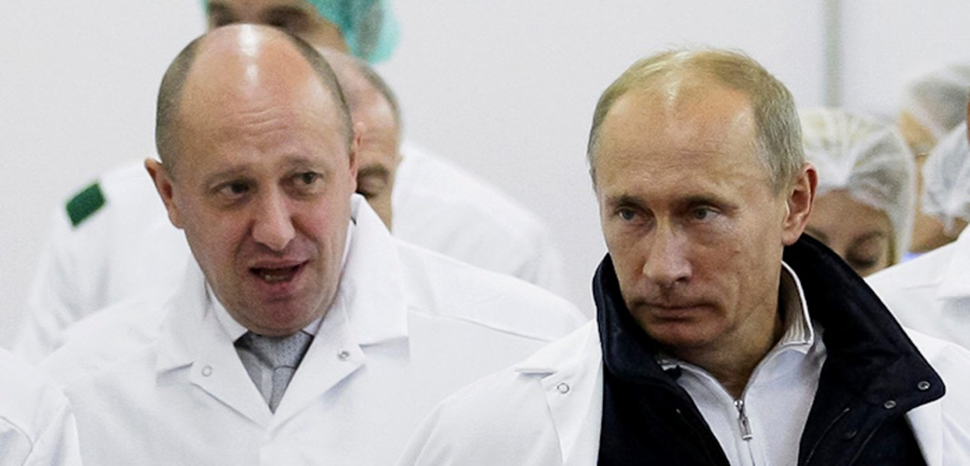On the past 24th of June, the Wagner Group, the infamous Russian private military company headed by Yevgeny Prigozhin, ventured in an ultimately unsuccessful mutiny against the government of President Vladimir Putin. The uprising immediately made the global headlines and came as a shock to both the general public opinion and experienced analysts alike. It is indeed one of those occurrences that is virtually impossible to predict, especially given the secretive nature of the power dynamics behind the Kremlin’s walls. But as soon as it broke out, the crisis sparked intense speculations on the reasons of the mutiny and its consequences for Putin’s tenure to power, for Russia’s stability and cohesion as a state, and for the war in Ukraine. Today, one month after the failure of the short-lived rebellion, it is possible to provide a more detached analysis of its repercussions.
While the specifics vary considerably – also due to the many contradictions of that day – almost all analysts agreed on one fundamental point: The mutiny was a clear signal of the fragility of Putin’s power apparatus, and likely the first falling tile triggering a domino chain that would ultimately result in his downfall, a (pro-democracy) regime change in Moscow, or even to the dissolution of Russia as a unified polity; which, in turn, would lead to Ukraine’s victory.
However, I disagree with this interpretation. On the contrary, I believe the event shows that Putin’s power system – and Russia as a state – are actually resilient. What underlies my conclusion is that, rather than focusing on wat has happened, we should concentrate on what did not.
Surely, the rebellion showed that there are cracks within Putin’s system, an unintended result of his divide et impera policies, combined with months of mounting rivalries between the Wagner Group and the regular military, exacerbated by the Ukraine war. Still, one month after the events, Putin remains in power, Russia is still a unified state, and the fighting in Ukraine continues with no foreseeable end in sight. Putin’s apparatus had to face a largely unexpected crisis, sustained the blow, and has so far managed to survive. This is almost a handbook example of resiliency. Quite literally at the end of the day, no top military or government official decided to switch sides and support Prigozhin – in contrast to what he had likely expected or at least hoped.
Here, I will open a brief digression on his possible motives. Many regarded his actions as an attempted coup to oust Putin and seize power. Some even drew parallels with precedent cases in Russia’s history – like the 1991 coup against Gorbachev, or the 1917 Revolution – and saw it as a prelude to the imminent collapse of Russia’s central government. But in my opinion, such historical analogies are oversimplistic and likely misleading. Prigozhin was neither an “old guard” military officer determined to defend the status quo, nor a revolutionary leader who strove to overthrow it. Instead, Prigozhin mainly echoes two non-Russia figures: the Athenian general Alcibiades and the 17th-century commander of the Imperial-Catholic forces, Albrecht von Wallenstein. While differences naturally exist, all three were influential wartime leaders with considerable personal fortunes who, due to their power and deeds, eventually came to be regarded as a threat by their own side. Alcibiades defected first to rival Sparta and then to Persia, arch-enemy of the Greeks. Von Wallenstein was considering joining his Protestant enemies before being assassinated at the order of the Hapsburgs, the ruling Imperial family. Similarly, I believe that Prigozhin mutinied out of self-preservation. Frustrated and at odds with his own leadership, he decided to act boldly and march on Moscow, in the hope (if not the expectation) of garnering internal or external support along the way. However, things unfolded differently. He found himself politically and materially isolated, and had to back down. He then lost his position and almost all he had, except his life – at least for the time being. Putin, on the contrary, remains in power.
Of course, something might still be going on in the Kremlin’s black box, invisible to external observers, and other sudden events should not be ruled out. The mutiny also damaged – at least in the short term – the president’s image as a strong leader facing no internal opposition. But now the situation appears to be under control, and the main takeaway of Prigozhin’s mutiny and its aftermath appears to be that Putin’s power system is resilient to shocks.
Naturally, this is not intended as a definitive long-term assessment. As noted above, things might change yet again. But this conclusion provides insights with profound policy-making implications.
Other than the potential misleading effects of simplistic analogies, it is also important to avoid other cognitive fallacies, most notably wishful thinking. A consistent theme when reading and discussing about Prigozhin’s mutiny is that many interpretations seem driven by the conviction that Russia and Putin will surely be defeated. Many predict Putin’s and/or Russia’s ultimate collapse, regarding it as the inevitable and “just” outcome of the Ukraine war. Russia undeniably has considerable problems, and its defeat is a plausible scenario. However, Ukraine is also facing difficulties, and events on the ground remain inherently unpredictable. As such, moral considerations notwithstanding, there is no guarantee that Russia’s defeat is immanent, and neither that it will have the results that many wish.
In fact, the consequences may be very different. To begin with, even if Putin is ousted, it is well possible that his successor will not be a pro-democracy pacifist, but instead a hardliner ready to escalate the conflict. Similarly, if Russia falls into chaos and, and especially into civil war, Ukraine would probably win; however, new major challenges would also likely arise in the form of refugee flows as well as criminal organizations and external powers exploiting the power vacuum. This would also imply serious nuclear proliferation risks, as Russia’s vast arsenal would no longer be under the command of a single centralized entity, but rather scattered among multiple newborn polities or rebel and non-state armed groups, potentially raising the prospect of nuclear smuggling.
But most importantly, we should keep in mind that the outcome of wars is determined by material capabilities and strategic decisions; and the current situation on the battlefield is that both sides are struggling, leaving the outcome uncertain. Things might change in the coming weeks and months, both on the frontline and within the Kremlin, but as of now, the outcome of the Prigozhin mutiny shows the resiliency of Putin’s apparatus. Regarding Putin’s downfall and taking a Russian defeat for granted – both are cognitive fallacies that risk negative effects on the policy-making process.
The views expressed in this article belong to the authors alone and do not necessarily reflect those of Geopoliticalmonitor.com.




